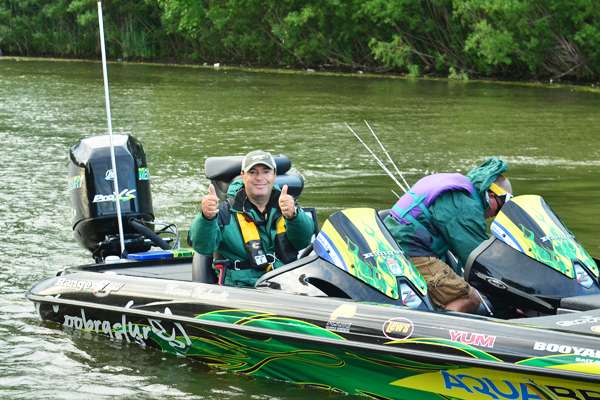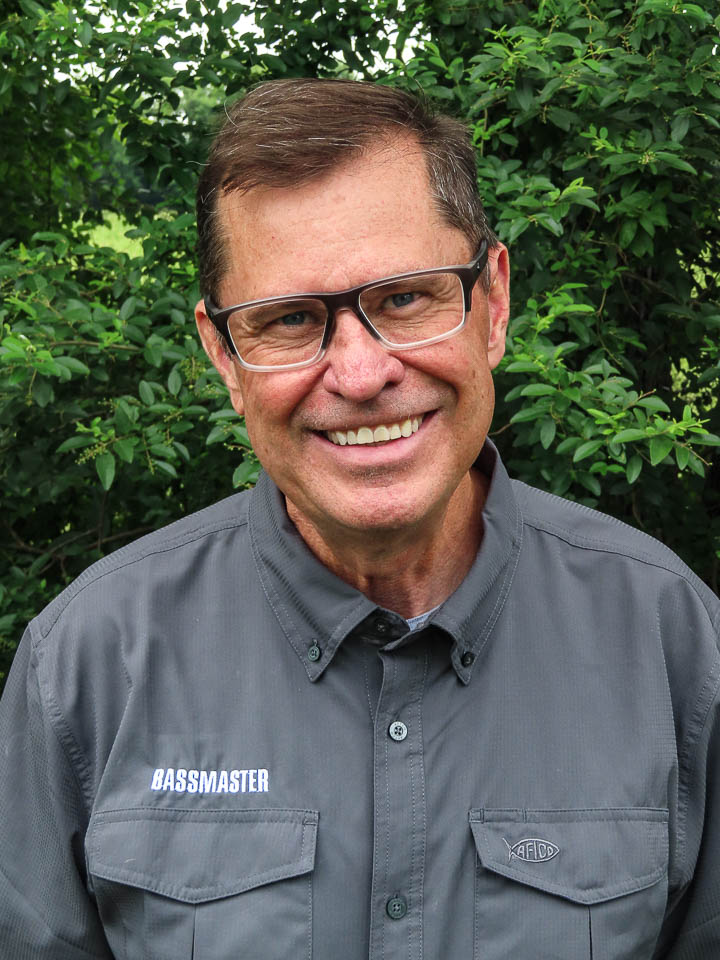
The story sounds familiar at first. A young angler tunes into The Bassmasters TV show for the first time. He becomes mesmerized at the sequence of pros fighting trophy bass, posing with fish before cheering spectators, and holding the winner’s trophy. An impressionable teenager, he’s so awestruck at the scenes played out on screen by the pros that he dreams of becoming one of them.
That is where the routine part of this story ends. The viewer is Marcos Malucelli, and the year was 1985. He was 18 years old. It was the second season of the iconic bass fishing show airing on The Nashville Network (TNN) at the time. Malucelli watched the show from Brazil, where his family satellite TV picked up the rogue signal that would forever change his life.
Some 27 years later, the blurry image from the TV screen is coming into focus in real life. Malucelli is competing in the 2012 Bass Pro Shops Bassmaster Northern Opens. By all accounts, he is the first Brazilian B.A.S.S. pro. He also gets paid to do a job that should be the envy of any American bass angler.
Malucelli is a technical consultant for Aquabrazil, a wholesale distributor of top name brand American fishing tackle. It’s his job to field test lures and other gear in a growing market for bass tackle in Brazil. Once a match is found, Malucelli and Aquabrazil work with American companies to modify the product and create packaging and marketing materials suitable for the Brazilian market.
“The tackle in the United States is the best tackle in the world, but sometimes it’s not exactly suitable for our fishing,” he said. “So I do the evaluation of the product for how it can be adapted to our fishing styles for golden Dorado, peacock bass, and now largemouth bass.”
That’s right. Largemouth bass. Malucelli said bass were introduced into Brazil in 1967, the same year Ray Scott held the All-American Bass tournament, the forerunner of the B.A.S.S. organization.
Malucelli is originally from Curitba, a city in southern Brazil. His angling credentials include 17 years guiding for peacock bass in the Amazon River. Golden Dorado and other highly prized saltwater species round out his guiding resume.
Malucelli’s college studies found him in southern California. He went from the heart of peacock bass country to the epicenter of trophy largemouth fishing. While there, he tirelessly studied English so he could understand American angling techniques. His classrooms were Lake Casitas and Castaic, the two famed fisheries where world-record largemouth have been on the lines of American trophy anglers.
Brazilians are a passionate people, and Malucelli’s experience inflamed his desire to pursue his dream.
“I told my wife that one day I will have the opportunity to fish B.A.S.S. and one day make the Bassmaster Classic; and here we are,” he said. “I’m trying to reach the Elite Series. These are my dreams.”
The turning point came in 2007 when the Malucellis were offered an opportunity to come to the United States. Aquabrazil intended for them to live in south Florida, to take advantage of Malucelli’s saltwater credentials. But the bass won out.
Church relationships led them instead Fort Mill, S.C. and Lake Wylie. They’ve been there ever since. Once settled, Malucelli lived his next dream: to fish a B.A.S.S. tournament. It was a memorable experience in 2008 at the Elite Series event held on Falcon Lake, Texas.
His Day One partner was Rick Clunn.
“I jumped into the boat and I hugged him,” recalled Malucelli. “He never understood why because my English wasn’t as good as now. For me, it was a dream. I watched him in 1985 and later on The Bassmasters.”
The next day he was paired with Shaw Grigsby, another hero.
“From that point on, I understood why this sport is so good here,” he continued. “You have such a great level of anglers that are also great people. They have the patience and elegance to know how to teach you the sport.”
The new unofficial B.A.S.S. ambassador from Brazil had this to say when interviewed at the second Northern Open of 2012 in Detroit.
“I don’t understand why there are not 1,000 people standing in line to be co-anglers in B.A.S.S. This is the best experience ever. Like today, I had a local angler and we caught fish all day long. I learned a lot from him and made a new friend. It’s unbeatable.”
Malucelli, now 45, said The Bassmasters TV series continues to be a vital connection to the growing contingent of bass anglers in Brazil. Bass clubs are organizing. A national championship attracts upwards of 200 anglers. The Brazilian economy is booming, and the anglers want the same lures as their American counterparts.
“The Bassmasters show changed the course of bass fishing for us in Brazil,” he said. There’s a blue peacock bass that is very similar to the largemouth. Before, we only thought it was a summertime fish to be caught on topwater. Then we saw American pros catching largemouth with deep crankbaits and big jigs in deep water. So we did that, too. And now we can catch the blue peacock year-round.”
The American techniques have also brought shallow water success to the Brazilians.
“Before all we knew was topwater fishing for the largemouth and peacock bass,” he said. “But now guys are flipping and pitching, using the same techniques they see on the TV show.”
Conservation and catch-and-release are also catching on.
“B.A.S.S. as an organization is very important for us,” he said. “That is because you showed us a different side of fishing. Fishing in Brazil has always been about going out, catching something and bringing it to the table. And what we learned from B.A.S.S. was catch and release, the sporting side and the conservation side.”
Bass fishing in Brazil is where it was in the United States back in the 1980s, when The Bassmasters became a TV hit. Coincidentally, a new TV network just launched to feed the insatiable desire for knowledge by Brazilian bass anglers.
“It’s called FishTV and will be on 24 hours a day,” said Malucelli. “It will help us promote the sport, the catch-and-release, and make bass fishing just as great in our country.”
“We are so grateful to what B.A.S.S. has done for us and what the future might bring for anglers like me.”

